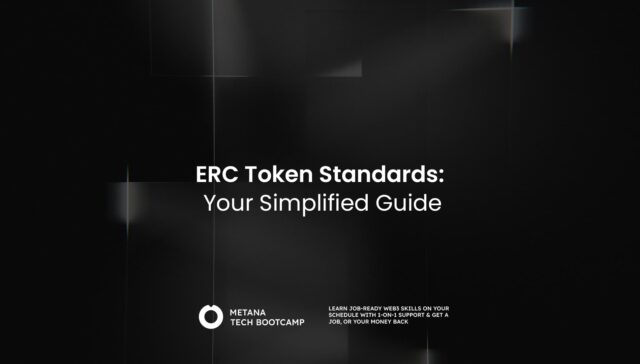With the rise of blockchain technology, digital asset management has become more secure and efficient. Smart contract wallets are transforming how users store, transfer, and interact with cryptocurrencies by leveraging the power of programmable contracts. Unlike traditional wallets, smart contract wallets offer enhanced security, automation, and flexibility, making them an essential tool in the decentralized finance (DeFi) ecosystem.
This article explores everything you need to know about smart contract wallets, their benefits, how they work, key features, top examples, and frequently asked questions.

TL;DR
Smart contract wallets use blockchain-based programs to automate and secure crypto transactions. They offer superior security features like multi-signature access, recovery mechanisms, and customizable permissions. Unlike traditional wallets, these wallets operate without requiring a centralized intermediary, making them more decentralized and flexible. Popular smart contract wallets include Argent, Gnosis Safe, and Ambire Wallet.
What is a Smart Contract Wallet?
A smart contract wallet is a type of cryptocurrency wallet that operates using blockchain-based smart contracts. These wallets provide programmable security and automation features that traditional wallets lack. Smart contract wallets allow users to define transaction rules, set spending limits, and recover funds without needing third-party intervention.
Key Differences from Traditional Wallets:
- Smart contract-based operations – Transactions are controlled by blockchain code rather than a private key.
- Automated processes – Enables automatic approvals, scheduled payments, and multi-user permissions.
- Recovery options – Allows social recovery and multi-signature authorization for enhanced security.
How Do Smart Contract Wallets Work?
Smart contract wallets operate by deploying a dedicated smart contract on the blockchain that manages user assets. The wallet interacts with the blockchain to validate transactions based on predefined conditions set within the smart contract.
Core Components:
- Smart Contract Code – Defines transaction rules, security mechanisms, and recovery options.
- On-Chain Execution – Transactions are executed automatically when conditions are met.
- Multi-Signature Support – Requires multiple confirmations to authorize transactions.
- Gas Fee Management – Some wallets offer gasless transactions via meta-transactions.
Example Workflow:
- A user initiates a transaction from their smart contract wallet.
- The wallet’s smart contract verifies the sender’s permissions and the transaction conditions.
- If conditions are met, the contract processes the transaction on the blockchain.
- The recipient receives the funds securely.
Benefits of Smart Contract Wallets
Enhanced Security
- Multi-signature authentication prevents unauthorized transactions.
- Social recovery mechanisms eliminate the need for private keys.
- Customizable permissions restrict unauthorized access.
Automation & Smart Features
- Scheduled transactions and recurring payments.
- Conditional approvals for secure transfers.
- Gasless transactions via relayers in supported wallets.
Improved User Experience
- No reliance on private keys, reducing security risks.
- Easy recovery options using trusted contacts.
- Seamless integration with DeFi applications.
Top Smart Contract Wallets in 2024
Argent
Argent is a leading smart contract wallet offering non-custodial security, social recovery, and gasless transactions.

Key Features:
- No seed phrase required (social recovery instead).
- Gasless transactions for selected assets.
- Integrated DeFi staking and lending options.
Gnosis Safe

Gnosis Safe is a multi-signature smart contract wallet widely used by DAOs and institutions.
Key Features:
- Multi-signature authorization for secure transactions.
- Customizable access permissions for teams and businesses.
- Supports multiple blockchains including Ethereum and Polygon.
Ambire Wallet

Ambire Wallet is an easy-to-use, self-custodial smart contract wallet designed for everyday DeFi users.
Key Features:
- Gas fee optimization to reduce costs.
- Built-in support for multiple blockchains.
- Automatic transaction batching for efficiency.
SafePal

SafePal combines hardware-level security with smart contract features, making it ideal for both beginners and experienced users.
Key Features:
- Secure private key storage with a hardware wallet.
- Mobile app integration for on-the-go management.
- Multi-chain support for Ethereum, BNB Chain, and more.
How to Choose a Smart Contract Wallet?
When selecting a smart contract wallet, consider the following factors:
- Security Features – Does it offer multi-signature support and recovery mechanisms?
- Blockchain Compatibility – Does it support the blockchain you use most?
- User Experience – Is it easy to use and navigate?
- Gas Fee Optimization – Does it offer gasless transactions or fee savings?
- Integration with DeFi – Can it interact seamlessly with lending, staking, and trading platforms?
FAQs
What makes a smart contract wallet different from a regular wallet?
- Unlike traditional wallets that rely solely on private keys, smart contract wallets operate using blockchain-based contracts that enforce security rules and automation features.
Are smart contract wallets secure?
- Yes, smart contract wallets offer superior security through multi-signature authentication, social recovery, and permission-based access control.
Can I use a smart contract wallet for DeFi?
- Absolutely. Smart contract wallets integrate seamlessly with DeFi platforms, allowing users to stake, lend, and trade assets securely.
Do smart contract wallets require gas fees?
- Most do, but some offer gasless transactions through meta-transactions or sponsored transactions.
What happens if I lose access to my smart contract wallet?
- Many smart contract wallets offer social recovery, where trusted contacts can help restore access without needing a private key.
Are smart contract wallets compatible with hardware wallets?
- Yes, wallets like Gnosis Safe support integration with Ledger and Trezor for added security.







